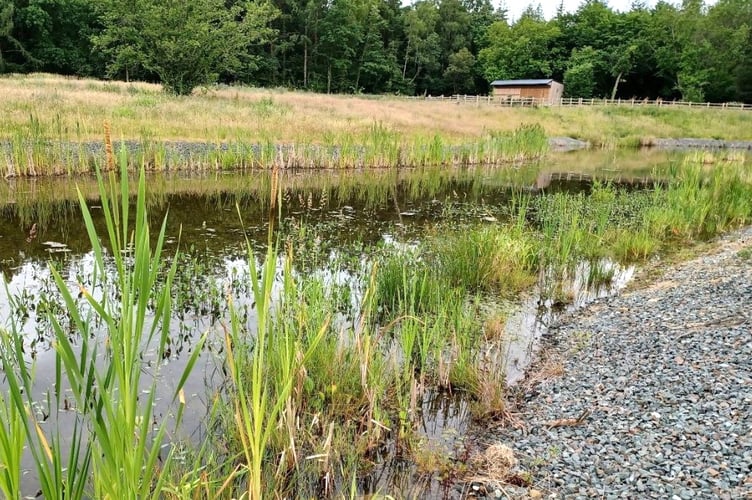WATER-LILIES are set to make return to Stover Country Park thanks to funding from National Highways.
The Designated Funds Programme is earmarking cash to help deliver a project to bring back white water-lilies to the park as part of a major scheme to de-silt Stover Lake which is a Site of Special Scientific Interest.
With the team at Stover Country Park, National Highways funded a giant reedbed filtration system in 2019 to help improve water quality and enhance biodiversity and wildlife habitats within the park.
The initial scheme was designed to capture and filter water run-off from the A38 and has since brought two benefits: significant improvements in water quality and also biodiversity and an increase in bird and invertebrate species.
National Highways has invested £847,762 from its environment and well being fund so the second phase of environmental and biodiversity work has just started and is due to be completed in the summer.
In partnership with Murlac Limited and Stover Park, the lake is being de-silted to boost improvements to water quality. It is hoped by reducing pollution and the silt, white water-lilies – not seen at the lake since 2007 – will re-establish to provide a more diverse habitat for wildlife.
To maintain the sustainable element of the projectm, the dredged silt material will be used to establish a mixed woodland adjacent to the lake.
As part of the funding initiative, National Highways’ investment is also enabling the restoration of the gatehouse at Stover Park, which directly faces the A38 at Heathfield, in addition to £2 million funding from the National Lottery Heritage Fund for further restoration and extension work.
Michelle Reed, National Highways’ Project Manager, said: ‘We’re pleased to be working with Devon County Council and the Stover Country Park team to further improve water quality and improve biodiversity.
‘The earlier filtration scheme has been such a success, and the reed beds themselves are supporting a range of birds, insects, reptiles, amphibians and mammals. Our work goes beyond the traditional focus of road investment and beyond operating, maintaining and improving roads, and we’re expecting the de-silting work to bring further benefits to the park and for the many people who visit and use the site.’
Pipework and other dredging equipment have now been installed at the site, the work is expected to end in July.
Murlac Director Josh Taylor said: ‘We’re excited to be involved in the restoration works at Stover Lake, and the environmental benefits achieved as a result of the desilting work will be reaped for many years.
‘Projects such as Stover Lake are why the entire team at Murlac are passionate about our approach and methodology, as we all understand the importance of caring and maintaining our environment for future generations. By undertaking the cutter suction dredging techniques, the work will be carried out with minimal disturbance to the environment and without the need to drain down the lake.’




